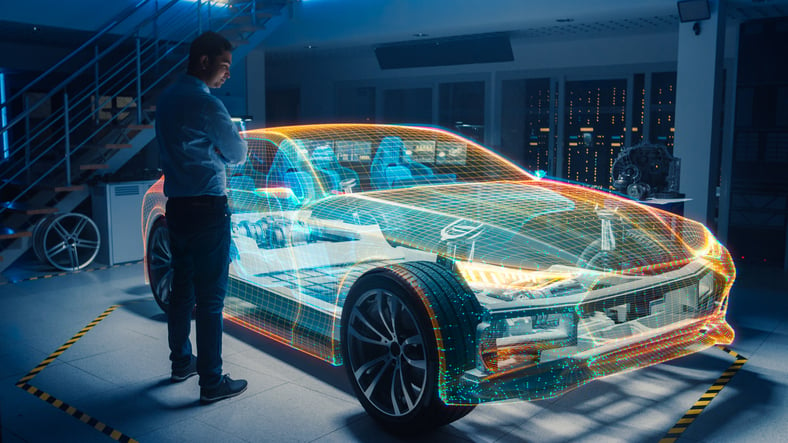
—
The relentless march of progress within the automotive sector is a vivid chronicle of human innovation, reflecting our collective aspirations, technological achievements, and a deep-rooted desire for advancement. This narrative is not merely about the transition from horse-drawn carriages to combustion engines but a testament to our quest for efficiency, sustainability, and connectivity. As we navigate through the history, current landscape, and potential future of automotive technology, it’s evident that the industry is on the cusp of a revolution, poised to redefine mobility in the 21st century.
The genesis of the automobile set the stage for a new era of personal mobility, offering a level of freedom and independence previously unimaginable. Pioneers like Karl Benz and Henry Ford didn’t just invent vehicles; they propelled society into a new dimension of living, where distance and time were compressed. The early 20th century saw automobiles evolving from luxury items for the elite to staples of everyday life for the masses, thanks to innovations in manufacturing and design.
However, the narrative of automotive progress is not linear. It’s punctuated with moments of rapid transformation, often aligned with broader societal shifts. The oil crises of the 1970s, for example, sparked a newfound emphasis on fuel efficiency and led to the development of smaller, more economical cars. This period underscored the automotive industry’s resilience and its ability to adapt to external pressures and consumer demands.
Today, the industry stands at another inflection point, driven by the urgent need for environmental stewardship and the digitization of human experiences. Car brands that start with E, such as Exeed and ElectraMeccanica, are at the forefront of this transition, embracing electric vehicles (EVs) as the cornerstone of a sustainable automotive future. These brands, along with legacy automakers, are reimagining mobility to reduce carbon footprints and combat climate change, signaling a departure from fossil fuels towards more renewable energy sources.
Parallel to the evolution towards electric powertrains is the advent of autonomous driving technologies. The pursuit of self-driving cars is not just a technological challenge but a philosophical one, prompting us to reconsider the very essence of mobility and safety. As vehicles become more capable of navigating without human intervention, we edge closer to a world where traffic accidents are rare and mobility is accessible to all, regardless of physical ability.
The digitization of vehicles extends beyond autonomy. The contemporary car is a hub of connectivity, integrating car logos and names A-Z with our digital identities through sophisticated infotainment systems and telematics. This transformation has turned cars into extensions of our smartphones, capable of receiving updates, providing real-time diagnostics, and even communicating with other vehicles and infrastructure. This level of interconnectivity heralds a new era of ‘smart’ mobility, where cars are not just modes of transport but active participants in a larger digital ecosystem.
Yet, the path forward is strewn with challenges. The shift to electric and autonomous vehicles necessitates a reimagining of urban infrastructure, from the proliferation of charging stations to the redesign of road networks. Regulatory frameworks must also evolve to ensure the safety and privacy of an increasingly connected and automated fleet. And as new business models emerge, centered around shared mobility and services, the very concept of vehicle ownership is being questioned.
Looking to the horizon, the future of the automotive world is replete with possibilities. Innovations in battery technology and materials science promise to make EVs more efficient, affordable, and accessible. Developments in artificial intelligence and machine learning are accelerating the advent of fully autonomous vehicles. And as the Internet of Things (IoT) continues to expand, vehicles will play a pivotal role in a seamlessly connected world.
In conclusion, the road ahead for the automotive industry is both exhilarating and daunting. As we confront environmental imperatives and embrace digital transformation, cars will continue to embody the spirit of innovation that has driven human progress for over a century. The journey of the automobile, from a mechanical curiosity to a beacon of future technology, mirrors our own journey towards a more sustainable, connected, and innovative world.
—
This content is brought to you by Irena Voytsekhovskaya
iStockPhoto
